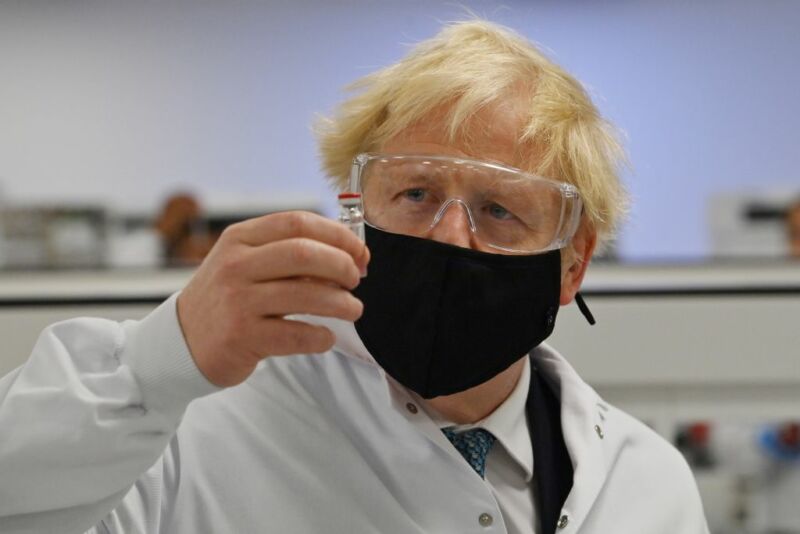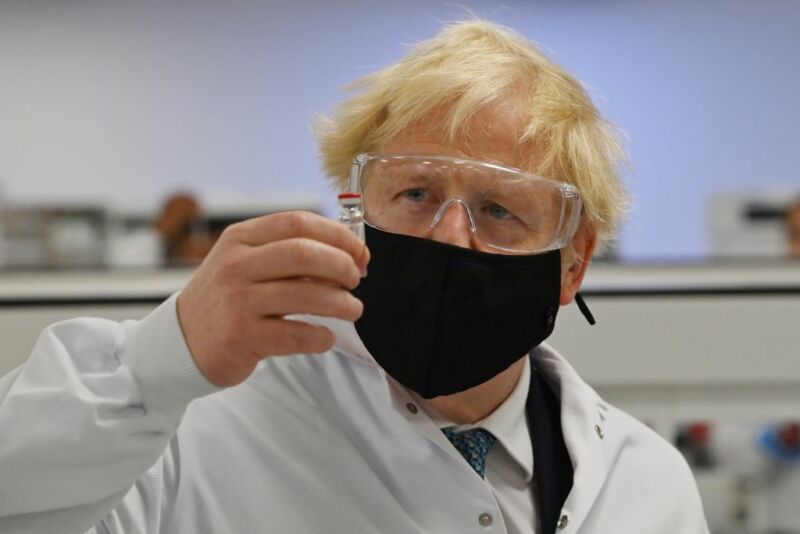
Enlarge / UK Prime Minister Boris Johnson poses for a photograph with a vial of the AstraZeneca/Oxford University COVID-19 candidate vaccine. (credit: WPA Pool/Getty Images)
This week, the UK released more data on the newly evolved strain of SARS-CoV-2, providing further evidence that it spreads more readily than previously circulating strains of the virus. Despite efforts to keep it limited to the UK, most public health experts expected it was already too late—a fear confirmed by the discovery of cases in Colorado. There is some good news, however, as the UK’s data indicates the new strain doesn’t appear to be more dangerous to people once they become infected.
In another bit of good news, health authorities in the UK approved the use of another vaccine, this one from a collaboration between Oxford University and the pharmaceutical company AstraZeneca. While the vaccine doesn’t appear to be as effective as the two others already in wide use, the addition of another supplier ensures that the UK should now have enough vaccine for its entire population early next year.
New, but decidedly not improved
Because the coronavirus accumulates mutations over time, there are now many distinct strains of SARS-CoV-2 circulating. The one that’s now causing concern first drew the attention of medical authorities in the UK because it drove a wave of new infections at a time where targeted lockdown policies were reducing the levels of other strains. By the middle of December, the strain had a name (B.1.1.7), was circulating widely within the UK, and had already been spotted elsewhere in Europe. But nearly everything else about the strain was an open question, including whether it was actually more infectious, or had simply ended up circulating within groups that were more likely to pass it on to others.





